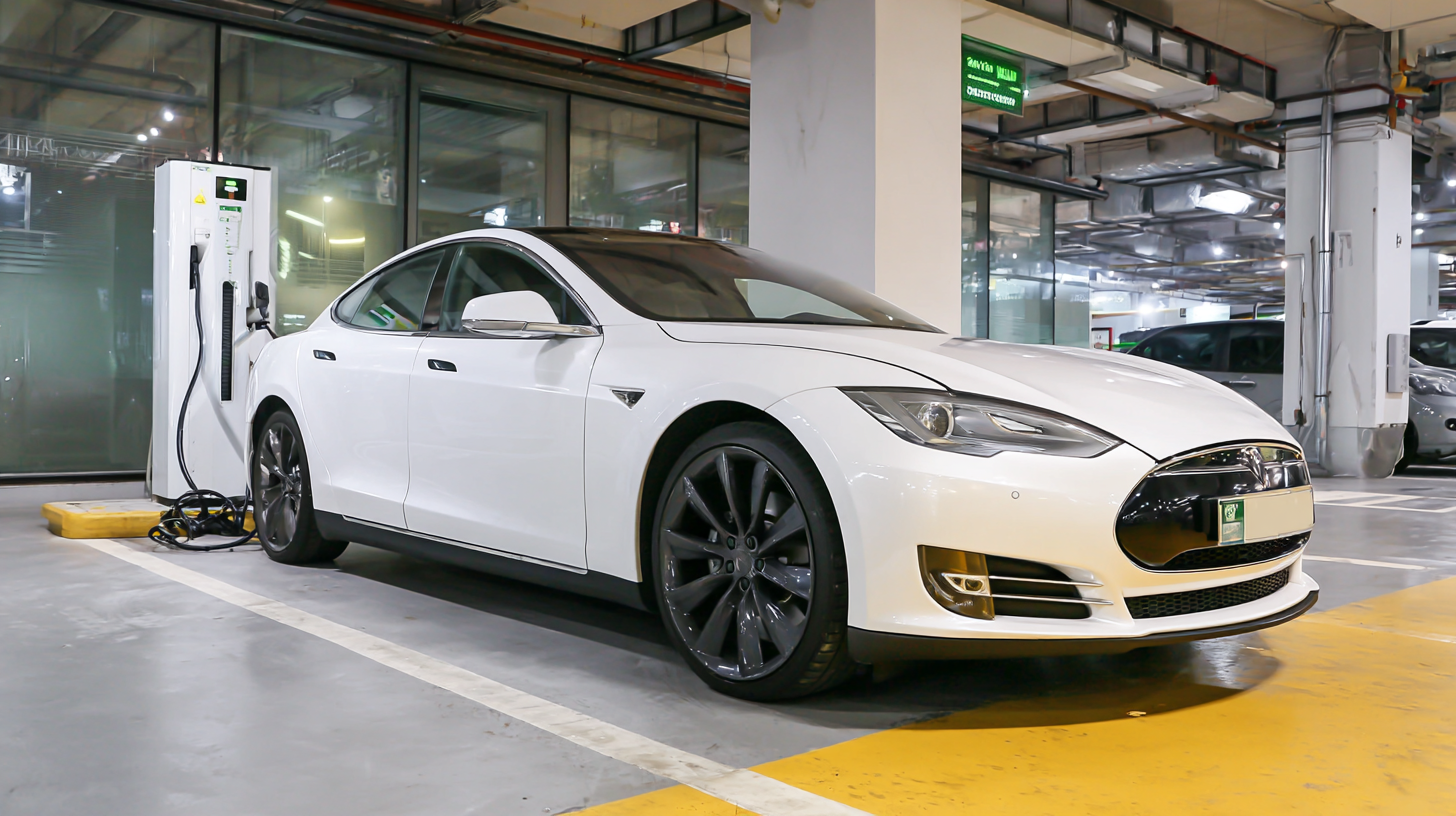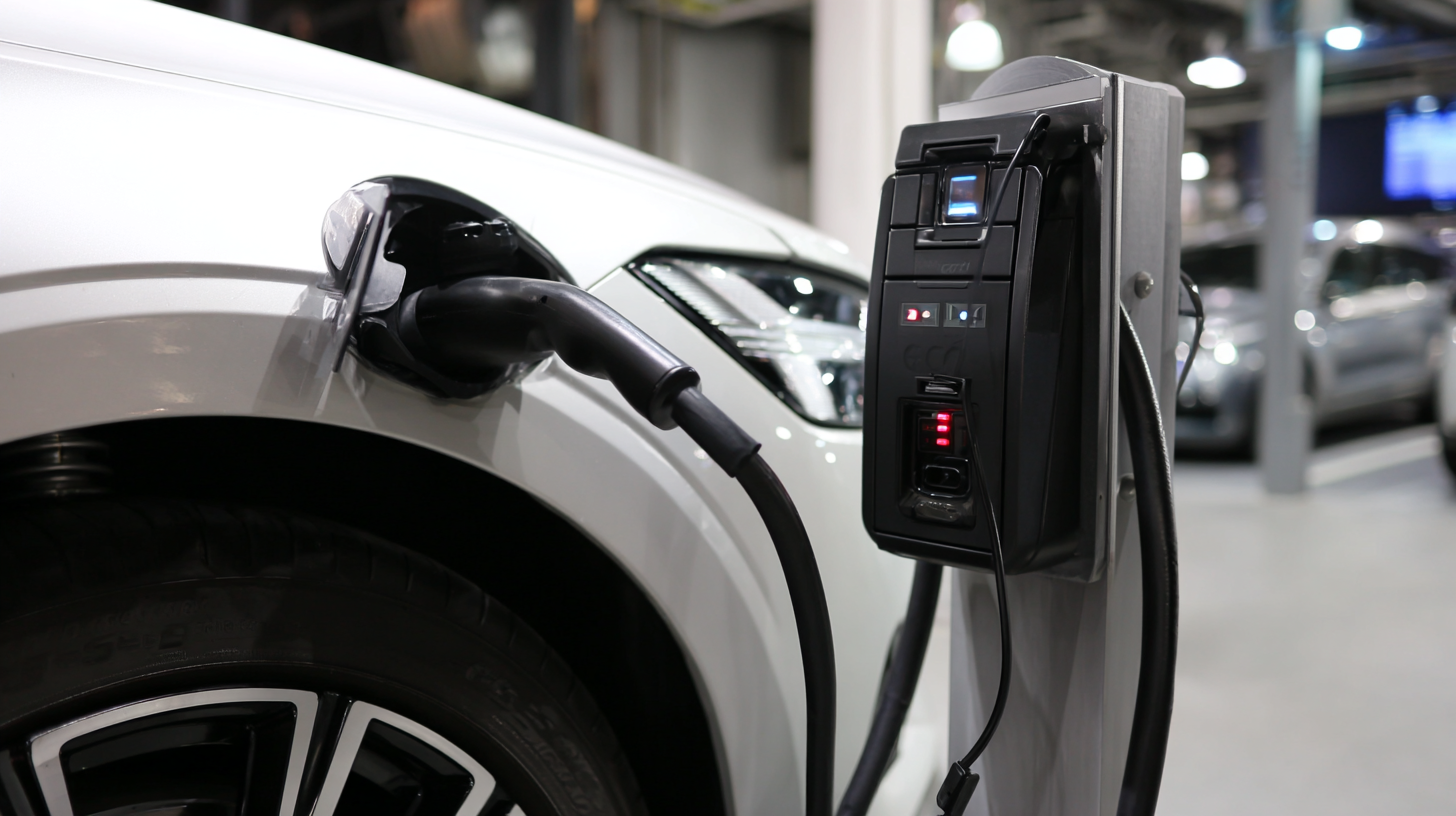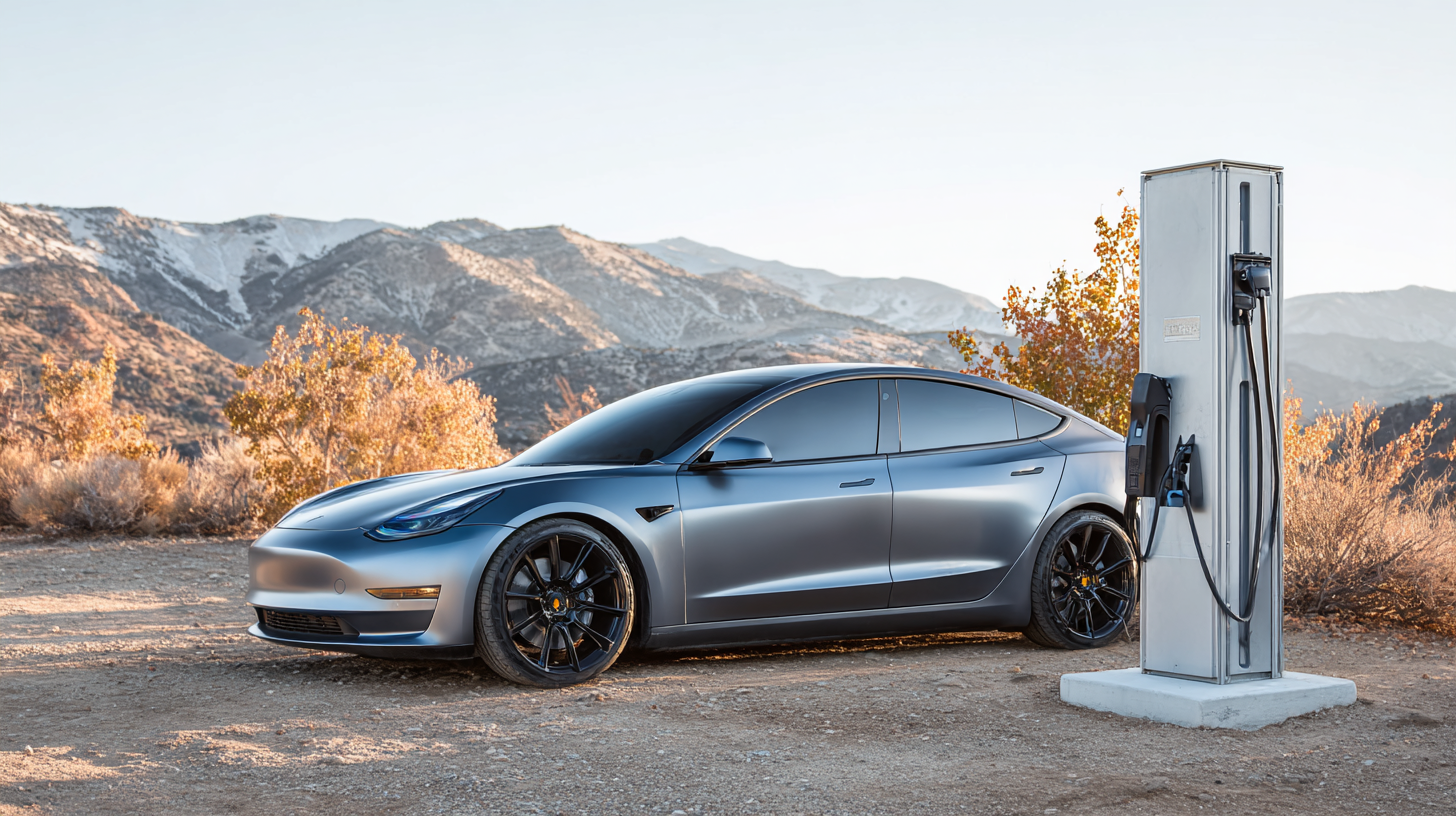As electric vehicles (EVs) continue to gain traction in the automotive industry, understanding the technology that powers them becomes increasingly vital for both consumers and manufacturers alike. One of the most critical components in the EV ecosystem is the EV Battery Charger, which plays a pivotal role in the convenience and efficiency of electric vehicle usage. In this blog, we will explore five incredible features of the best EV battery chargers that not only enhance charging speed and safety but also contribute to the overall user experience. With the rapid advancements in technology predicted for 2025 and beyond, knowing what to look for in an EV battery charger is essential for making informed decisions. Whether you're a seasoned EV owner or considering making the switch, this guide will equip you with the knowledge to choose the perfect charging solution for your vehicle.

When it comes to the key industry applications of top EV battery chargers, understanding their multifaceted uses can significantly enhance their value. One notable application is in commercial fleet management. Businesses with electric vehicle fleets can optimize their charging strategies to minimize downtime and reduce operational costs. By implementing smart chargers that adapt to energy demands, companies can ensure their vehicles are always ready for use.
Another critical application is in public charging stations. The best EV battery chargers are designed for high efficiency and fast charging, which reduces the wait times for consumers. As cities increasingly invest in infrastructure to support electric vehicles, these chargers can play a vital role in boosting adoption rates. It’s essential to consider the installation locations – placing chargers near popular venues like shopping malls and business districts can drive usage and offer convenience to users.
Tip: For those considering purchasing an EV battery charger, look for models that offer compatibility with various vehicle brands and charging standards. This flexibility not only future-proofs your investment but also enhances accessibility, allowing you to accommodate different EV models in your network.
When it comes to selecting a high-quality EV charger, there are several essential features that stand out. First and foremost, charging speed is crucial; a Level 2 charger can significantly reduce charging time compared to standard outlets. According to industry reports, these chargers typically provide charging rates between 3.7 kW to 22 kW, allowing most electric vehicles to recharge in just a few hours, making them ideal for home use.
Another vital feature is the charger's durability and weather resistance, which are essential for outdoor installations. A robust design can withstand various environmental conditions, ensuring longevity and reliable performance. Additionally, smart features such as scheduling and remote monitoring not only enhance user experience but also optimize energy consumption and costs, responding to grid demands and even taking advantage of off-peak electricity rates.
**Tips:** When evaluating EV chargers, look for units that offer comprehensive user interfaces and app connectivity to monitor your energy usage. Additionally, consider chargers that are compatible with multiple vehicle brands to ensure a versatile charging solution. Lastly, check for warranty and customer support, as these can reflect the manufacturer's confidence in product quality and longevity.
| Feature | Description | Importance |
|---|---|---|
| Fast Charging | Allows faster battery replenishment, reducing wait times. | Essential for users with tight schedules. |
| Smart Connectivity | Integrates with mobile apps for monitoring and control. | Enhances user experience and management. |
| Versatile Compatibility | Compatible with various EV models and types. | Increases convenience for multiple vehicle owners. |
| Safety Features | Includes overcurrent, overvoltage, and temperature protection. | Ensures safety during charging processes. |
| Portability | Compact and lightweight design for easy transport. | Ideal for users who travel frequently. |
As electric vehicles (EVs) continue to gain traction worldwide, the necessity for efficient charging solutions has never been more critical for EV owners. According to a report by the International Energy Agency (IEA), the global stock of electric vehicles surpassed 10 million in 2020, a figure that is expected to increase dramatically as more drivers transition to sustainable transportation. With this surge, the demand for high-performance battery chargers has risen accordingly, highlighting the importance of having a reliable and efficient charging system.

A top-tier EV battery charger not only reduces charging time but also enhances the overall lifespan of the vehicle's battery. Research from the U.S. Department of Energy indicates that faster charging can significantly decrease the degradation of battery cells, thereby prolonging their usability and performance. Furthermore, adopting smart charging technologies can lead to cost savings. A study by the Rocky Mountain Institute found that smart charging solutions can lower electricity costs by as much as 30% during off-peak hours, making EV ownership more economical. As the market evolves, understanding these efficient charging features becomes essential for EV owners looking to maximize their investment.
Smart technology is transforming the landscape of electric vehicle (EV) charging, pushing the boundaries of efficiency, convenience, and user experience. One of the standout features of modern EV battery chargers is their ability to connect with smartphone apps. This enables users to monitor charging progress in real-time, schedule charging sessions during off-peak hours, and receive notifications when the battery is fully charged. By leveraging data analytics, these smart chargers can optimize power usage, ultimately saving drivers money on their energy bills while reducing stress on the grid.
Additionally, the integration of advanced safety features enhances the overall performance of EV chargers. Smart technology allows for automatic monitoring of electricity flow, helping to prevent overheating and potential hazards. Many chargers come equipped with built-in communication systems that can alert users to any issues or anomalies, ensuring a safer charging experience. Furthermore, some models are compatible with renewable energy sources, enabling owners to charge their vehicles with solar or wind energy, thus promoting sustainability while enhancing energy independence. These innovations demonstrate how smart technology not only improves charging performance but also furthers the commitment to a greener future.
The rapid adoption of electric vehicles (EVs) has been significantly influenced by advancements in charging technology, particularly the implementation of fast charging. Fast charging stations are strategically located to minimize downtime for EV owners, allowing them to recharge their vehicles in a fraction of the time it would take with a standard charger. This convenience can effectively eliminate range anxiety, a common concern among potential EV buyers, by reassuring them that they can quickly refuel their vehicles during long trips or busy commutes.
Moreover, the impact of fast charging extends beyond individual convenience; it plays a crucial role in the broader acceptance of electric vehicles within society. The ability to charge rapidly enhances the practicality of owning an EV, making them a more attractive alternative to traditional gas-powered cars. As infrastructures for fast charging improve, more drivers are likely to consider switching to electric, resulting in higher adoption rates. In turn, this shifts the market dynamics, prompting manufacturers to produce more EVs, which contributes to a positive feedback loop in the transition toward sustainable transportation.

